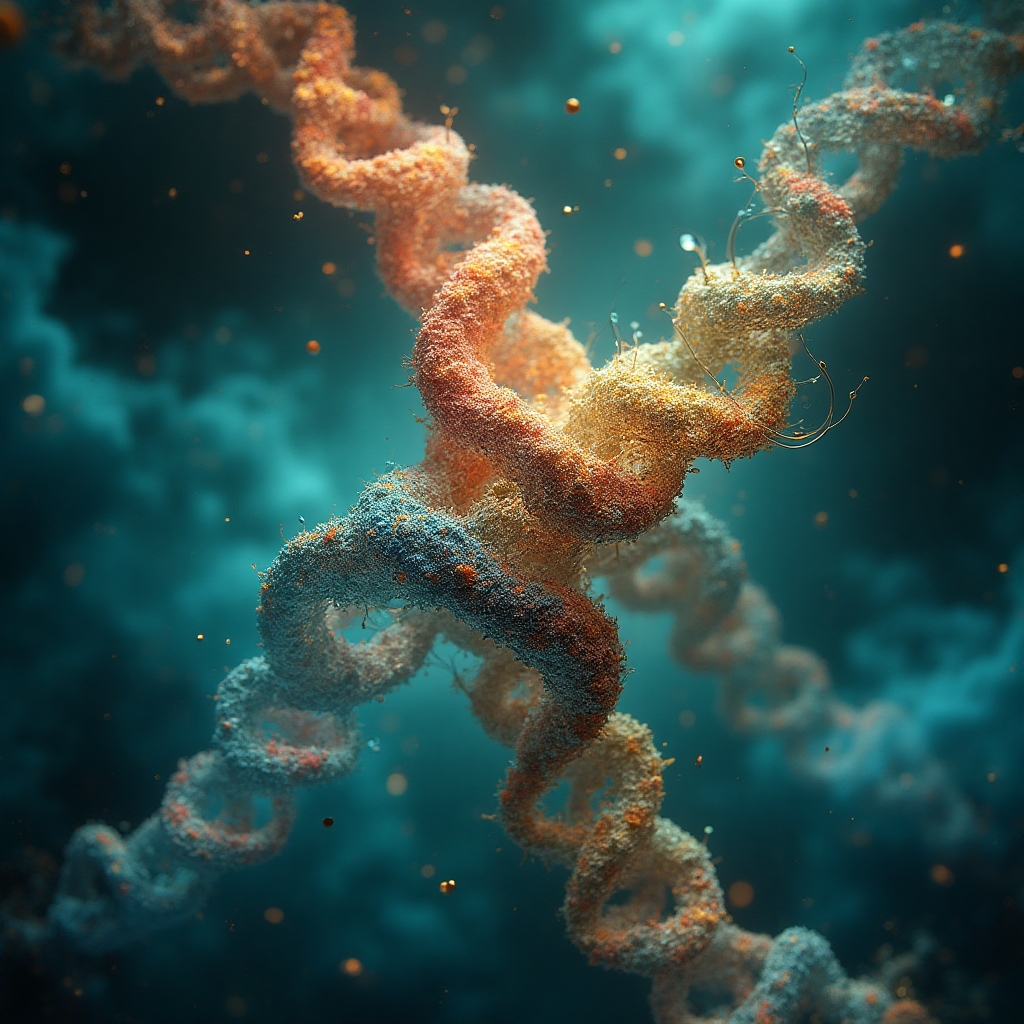The dawn of artificial intelligence (AI) has sparked an unending wave of innovation. But could it also herald a new kind of spiritual revolution? As AI devices like Google's Assistant and Amazon's Alexa become fixtures in our homes, schools, and workplaces, we're left to ponder: will AI replace religion? Could machine learning algorithms offer answers to existential questions once reserved for religious leaders? The implications are profound and polarizing.
This journey through the intersection of technology and spirituality explores historical contexts, current trends, and the potential future of faith in an AI-driven world. We will also touch upon the roles of significant stakeholders, from tech giants to religious institutions. So sit back as we embark on this thought-provoking exploration and contemplate a question that transcends both God and Google.
The Historical Intersection of Technology and Spirituality
Throughout history, mankind has always intertwined spirituality with technology. Ancient civilizations like the Egyptians and Mayans used complex calendrical systems to align their religious observances with cosmic events. Fast forward to the modern era, and charismatic televangelists use television and social media to reach millions of followers.
The current era of AI presents an evolution in this relationship. Technologies like AI-driven chatbots or virtual reality are already being used in spiritual contexts. For example, there are already instances where AI is used to recite prayers, connect worshippers, and even offer spiritual counseling. This shift from human to digital spiritual guidance highlights a growing trend. Would AI have a role similar to ancient divine oracles, revered yet feared for their seemingly miraculous insights?
Contemporary Relevance of AI in Religious Practices
Why is this topic more relevant now than ever? As society becomes increasingly secular, many find themselves seeking alternative forms of comfort and guidance. The convenience technology offers is hard to resist. For younger, tech-savvy generations, AI can offer immediacy, personalization, and round-the-clock availability that traditional religious settings might lack.
In Japan, a country with a declining number of traditional priests, a Buddhist temple introduced 'Pepper,' an AI monk capable of performing funeral rites and chanting sutras. Similarly, other religious institutions globally have adopted AI, demonstrating an openness to integrate new technologies into age-old traditions.
Stakeholder Perspectives and Talents
- Religious Institutions: While some view AI as a threat, others see it as a resource to reach their congregation in unprecedented ways. Will their role evolve into tech-friendly service providers, or will they resist this transformation fiercely?
- Technology Companies: Companies like Google and Amazon are positioned as potential digital 'prophets' of the future, holding keys to AI ecosystems that might prioritize spiritual AI applications. Their impact could redefine faith consumption globally.
- Individuals: The end-user will ultimately decide if AI replaces traditional faith. The growing reliance on technology, especially among younger generations, unveils new communication paradigms with divinity.
Core Arguments: AI Empathy Versus Emotional Depth in Spiritual Care
AI has the capacity to simulate empathy, using algorithms to emulate emotional responses. For instance, AI models can provide comforting responses to personal anxieties or losses. However, critics often cite AI's lack of genuine emotional depth and understanding as a caveat. Can AI truly understand the human condition, or is its role merely supportive?
Consider organizations like Soul Machines, pioneering human-like avatars. Although effective for particular situations like educational environments, how well can they grasp spiritual or moral nuances? Embedding ethical and moral codes in AI could serve as a foundation for machine-driven spiritual coaching.
On the other hand, case studies like Microsoft's AI chatbot 'Xiaoice' in China highlight AI-human emotional interactions' profound potential – simulating human companionship and emotional support on a massive scale. Are we heading into an era where AI relationships counter age-old family or community-based spiritual practices?
Data & Evidence: A Mixed Bag
Case Studies: Analysis shows AI in spiritual contexts increases engagement among technically inclined demographics. However, concerns about privacy, data security, and ethical misuse persist. How do these dynamics affect trust in AI-guided religious experiences?
| Positive Trends | Concerns |
|---|---|
| Increased Accessibility to Religious Content | Privacy Concerns and Data Security |
| 24/7 Availability | Lack of Genuine Emotional Connection |
Counterargument: A Spiritual Renaissance Through Technology?
Opponents to AI in religious contexts argue that machines can never replace the intricacies of spiritual awakening and enlightenment. Faith is inherently personal, fluid, and deeply entwined with human emotions and experiences.
This perspective is supported by voices within religious communities who emphasize the unquantifiable elements of spirituality that AI cannot replicate. They question whether deep-seated beliefs could become commoditized or simplified in digital form, losing their transformative impact.
Future Implications: AI as a Spiritual Guide?
Imagining a future where AI becomes omnipresent in faith practices, one might foresee personalized spiritual guides that provide unique experiences. These could range from AI companions in religious pilgrimages to virtual reality temples that foster deeper connections to the divine.
AI's predictive analytics could potentially forecast spiritual trends or offer insights no human clergy can provide. However, the key lies in integration that enhances, rather than replaces, the core tenets of spiritual beliefs and practices.
Practical Applications and Solutions
How do we address the potential risks of AI replacing religion entirely? Developing frameworks around ethical AI use is crucial. Religious organizations should adapt to tech advancements, creating hybrid models that sustain community essence while integrating digital positives.
For instance, faith leaders collaborating with AI engineers to develop spiritually robust AI solutions could bridge tradition with modern needs. Transparency around data use and altruistic motivations is key in building trust among users.
Consider starting an open-source initiative enabling religious scholars and tech developers to co-create AI systems rooted in ethical spirituality, nurturing a culture of innovation grounded in integrity.
Anecdotes: Finding God in the Machine
Imagine Sarah, a devoted tech enthusiast, whose recent heartache led her to seek solace through an AI-guided meditation app. As she navigates her grief with the app's comforting voice guiding her breaths, could it transcend digital limitations, offering her genuine peace?
Similarly, Mr. Alvarez, a faith leader who resisted digitalization, embraces change as he recognizes the beauty in offering virtual support to his community, witnessing his faith transcend physical boundaries to comfort more souls.
Conclusion: Questions Left Unanswered
As we grapple with AI's impending role in spiritual discourse, we must balance technological advancements and personal faith's essence. Will the promise of AI reinforce spiritual teachings, or does it risk phasing them out entirely?
As we stand at this crossroad of godly wisdom and digital intelligence, how will you navigate your spiritual journey? Join the iNthacity community, share your thoughts, and engage in this profound debate.
Will you embrace AI as a divine companion, use it as a guide, or resist its infiltration of sacred spaces? The choice is yours in this growing tapestry of faith and technology.
Wait! There's more...check out our gripping short story that continues the journey: The God in The Circuit
Disclaimer: This article may contain affiliate links. If you click on these links and make a purchase, we may receive a commission at no additional cost to you. Our recommendations and reviews are always independent and objective, aiming to provide you with the best information and resources.
Get Exclusive Stories, Photos, Art & Offers - Subscribe Today!

























1 comment